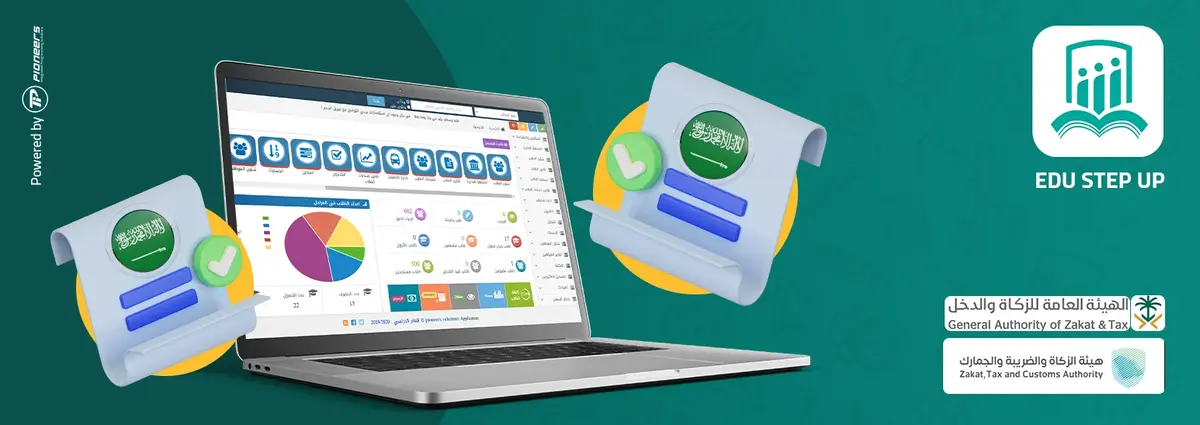
Mon 2024/03/11
Applying E-invoicing to educational institutions in Saudi Arabia
Saudi Arabia is continuously working to adjust the economic system and implement the ambitious vision of the kingdom for 2030 which considers the digital transformation of e-invoicing systems as an essential element to achieving its goals and future project
The Kingdom aims to digitize the new electronic billing system to reduce tax evasion, ensure the accuracy of economic transactions, and improve the quality of dealing between merchants and companies, especially after Saudi Arabia took its first steps successfully in the first phase of e-invoicing and integrating the Zakat, tax and Customs Authority with the General Authority of Zakat and income.
During this article, you will know everything you need to know about the concept of e-invoicing, the characteristics, and features of e-invoicing, the impact of e-invoicing on educational institutions, and what should you do as a school owner.
What is E-invoicing?
E-invoice is an ordinary invoice, but it is issued in digital form, which allows the exchange of invoices, debit and credit, and processing them in an organized electronic format between the seller and the buyer to ensure reliability and non-manipulation.
The trend towards issuing digital documents is a global trend, not a local one, and the kingdom began building the operational model of the electronic billing list in September 2020, and in December of the same year the electronic billing list was published for the first time.
Stages of e-invoicing in the kingdom:
The first phase: In December 2021, the Kingdom launched the first phase of electronic billing in what is known as the issuance and filing phase, where all persons subject to the provisions of the electronic billing regulation must issue their e- invoices through an enterprise resource planning system approved by the authority, and taking into account the data that must be available according to the type of invoice.
The second phase: January 2023, is known as the linking and integration phase, means integration with the Zakat authority after sharing data and information, which means that each invoice issued by you reaches the authority at its moment, which requires additional and strict standards at some time.
The authority is working to implement this stage to oblige establishments gradually and in groups and will inform the groups directly at least six months before the date set for the link.
The implementation of the second phase of the e-invoice comes as an extension of the economic renaissance and digital transformation taking place in Saudi Arabia and complements a success story that began with the first phase of the e-invoice application, which achieved many positive results, most notably raising the level of consumer protection throughout Saudi Arabia and awareness on the part of taxpayers in their responsiveness to the implementation of the first phase of the project.
The importance of the e-invoicing system:
- reduce the expenses of administrative expenses
- Raising the technological level of companies and their employees
- Fair competition between traders and Prevention of tax evasion
- Fighting the hidden economy whose harms are more than its returns
- Facilitate procedures for customers and shorten a lot of time and effort for them
- Getting rid of paperwork and its errors, economic expenses, and accumulation of records
- Standardize the mechanism of documenting and auditing invoices, which helps companies, people and the government to work more efficiently
- Diversity in the sources of building the Saudi economy and not relying solely on oil and petroleum products as the main source
- Adjusting the relations between the supplier and the consumer, which may be an individual, company or a government entity
What is the penalty for non-compliance with the decisions of the Zakat tax and Customs Authority regarding the e-invoice?
The authority has applied fines starting from the implementation of the first phase of the electronic invoice, and these fines start at 5 thousand SAR and escalate to more severe fines.
Fines are imposed on those who have not issued their invoices electronically in the first place, or who issue invoices that do not match the technical conditions and specifications of the said invoice for each stage, as well as in the case of Amendment and deletion of invoices after issuance. There are non-financial penalties that start with an alert, in cases of failure to report a technical malfunction that leads to the failure of invoices to reach the authority, no matter how temporary the period.
The impact of e-invoicing on educational institutions in the kingdom
According to the vision of 2030, the government of Saudi Arabia is working to bring about major developments involving all sectors in the country, and this vision has paid great attention to the education sector in order to build a promising generation with diverse cultures and based on a solid education.
The kingdom has paid attention to all stages of education and has made many commitments towards it, and one of the most important of those commitments that contribute to the development of education and its compatibility with Vision 2030 is the following:
- Achieving a qualitative leap in the education system through the development of educational curricula
- Work on creating an education that contributes to the advancement of the economy and bridges the gap between higher education graduates and the requirements of labor markets
- Upgrading teaching methods that make the teacher the focus, focusing on developing skills and building the spirit of creativity
- Re-conceptualizing the school as an educational institution that provides skills and produces a generation of ambitious people who are ready to compete, love work, and produce
- Relying on safe and reliable sources, programs and projects that enhance investment and job opportunities
E-invoice for schools In Saudi Arabia
As the owner of a school or educational institution, you need a secure billing system that helps you document students ' financial records, and in light of the corona pandemic (covid-19), online learning has become necessary to complete the educational stage, it may be a good idea to rely on online learning programs and zoom meetings to keep abreast of global developments in the field of Education.
But, how will you get your money from them? This will be done by joining the e-invoicing.
Advantages for schools to apply e-invoice:
- Practical organization: providing an integrated electronic management that contributes to conducting periodic reports on the work.
- Flexibility: the student can register remotely with the provision of distinctive electronic payment methods.
- Easy communication: you can notify students of all the latest developments and submit the required offers and invoices online.
- Speed registration: there is no need for the student to wait to register, through a click of a button he can join your institution easily.
- Marketing and advertising: we have become in the world of digitalization so an email is enough to communicate your marketing idea to the whole world.
- Improving the management of statements and records: distinctive and tidy methods are presented that clarify all the necessary details for students without any randomness.
You can provide professional e-invoices to your clients showing financial transactions in terms of the type of course or subscription, policy and Privacy, terms and duties.
Pioneers Solutions Company helps you start your first steps towards the digital transformation of your educational institution by providing an integrated Edu Step Up school management system.
The program works on organizing and managing school affairs, providing an easy environment for communication between teachers, students’ parents, and the school administration, and is easy to handle and suitable for all schools of different types.
The program supports e-invoicing and is capable of linking with external systems using the application programming interface (API), and the software development fund (SDK) in order to share e-invoice data with the system.
Start converting your school digitally and connect your educational institution to the e-invoicing system with the Edu step-up school management program.
To request a trial version of the system and learn about all the features, please contact us!
Leave Comment






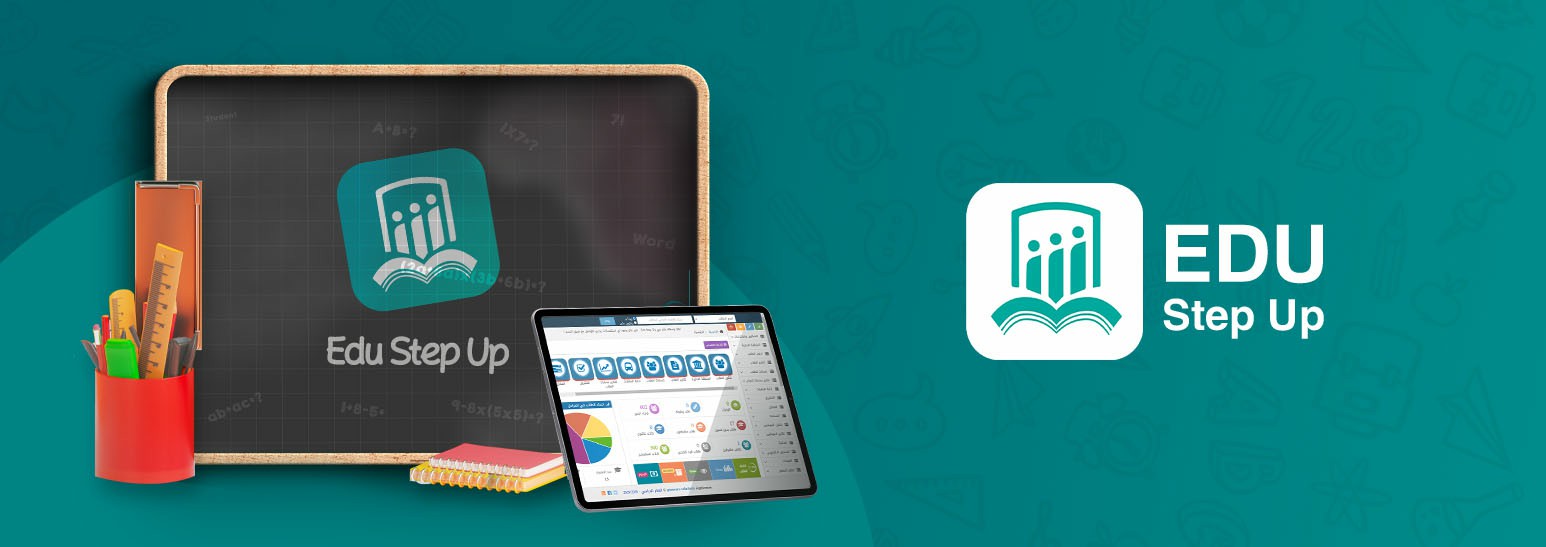




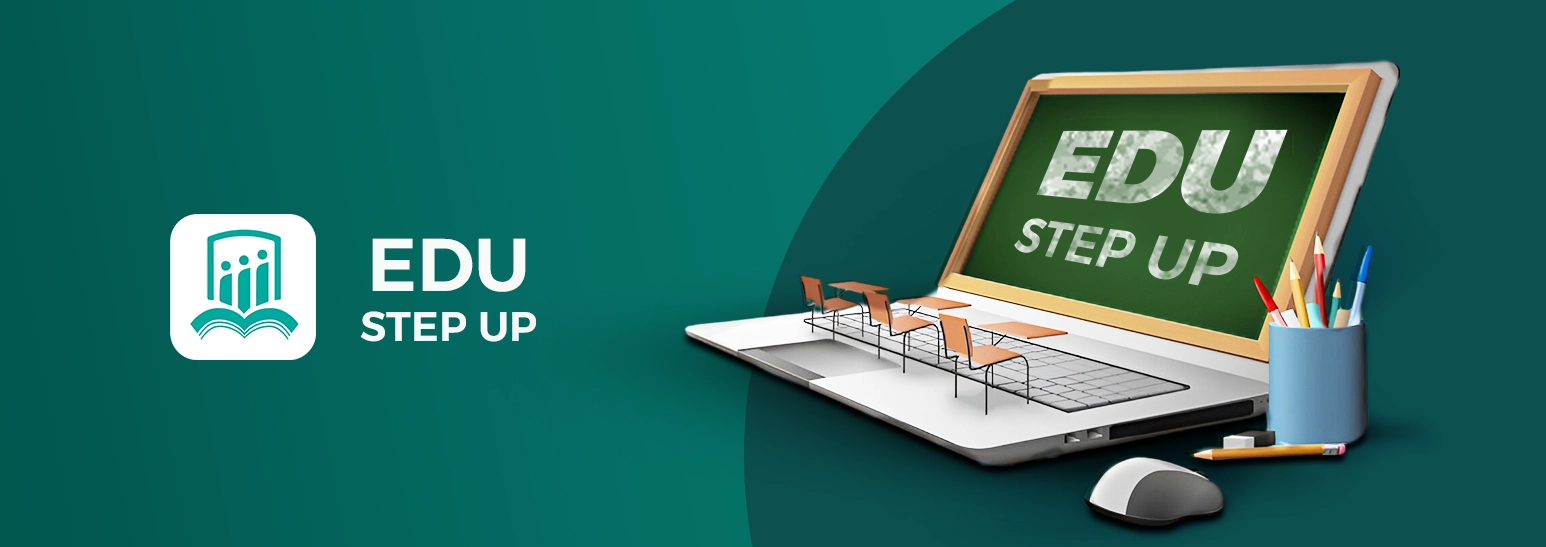

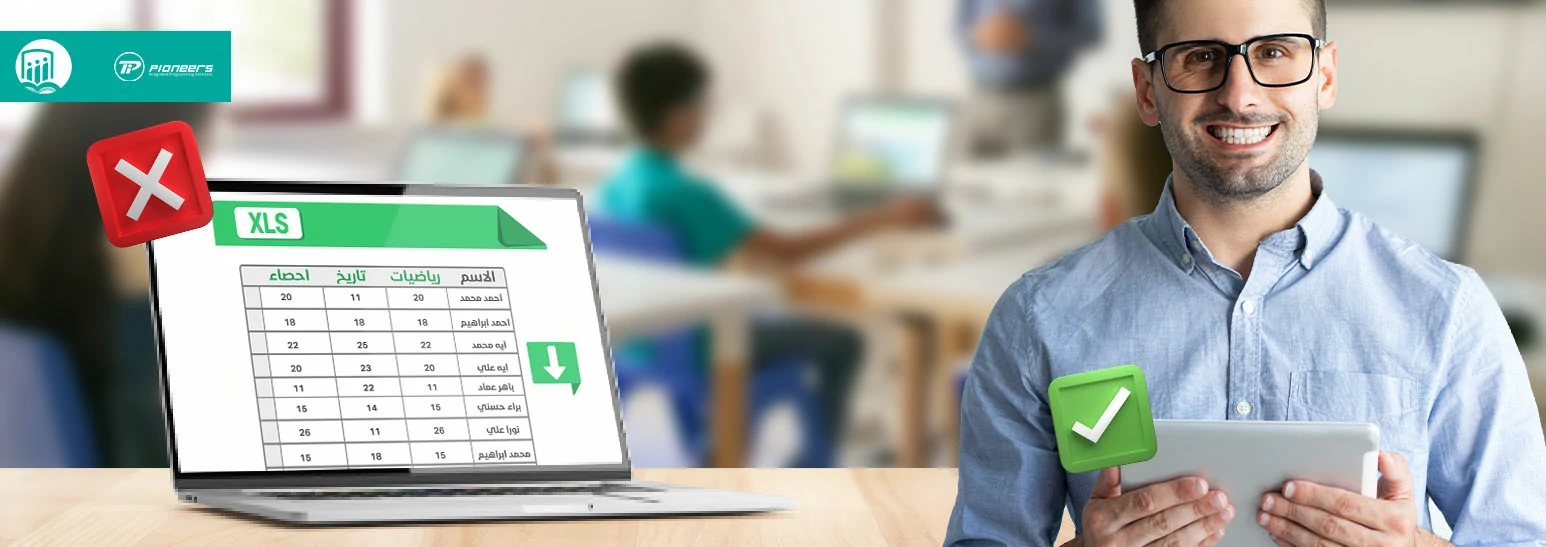
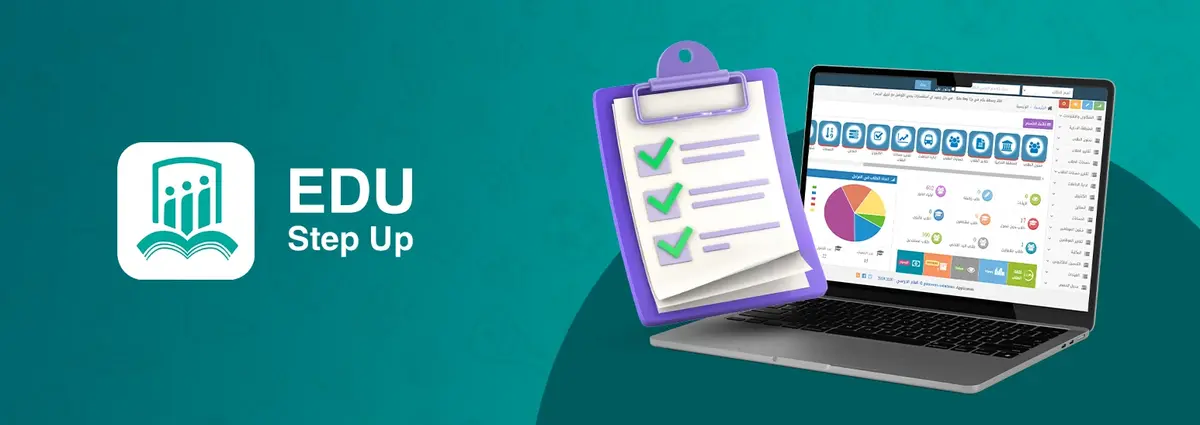
Comments